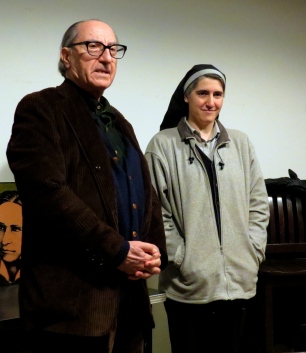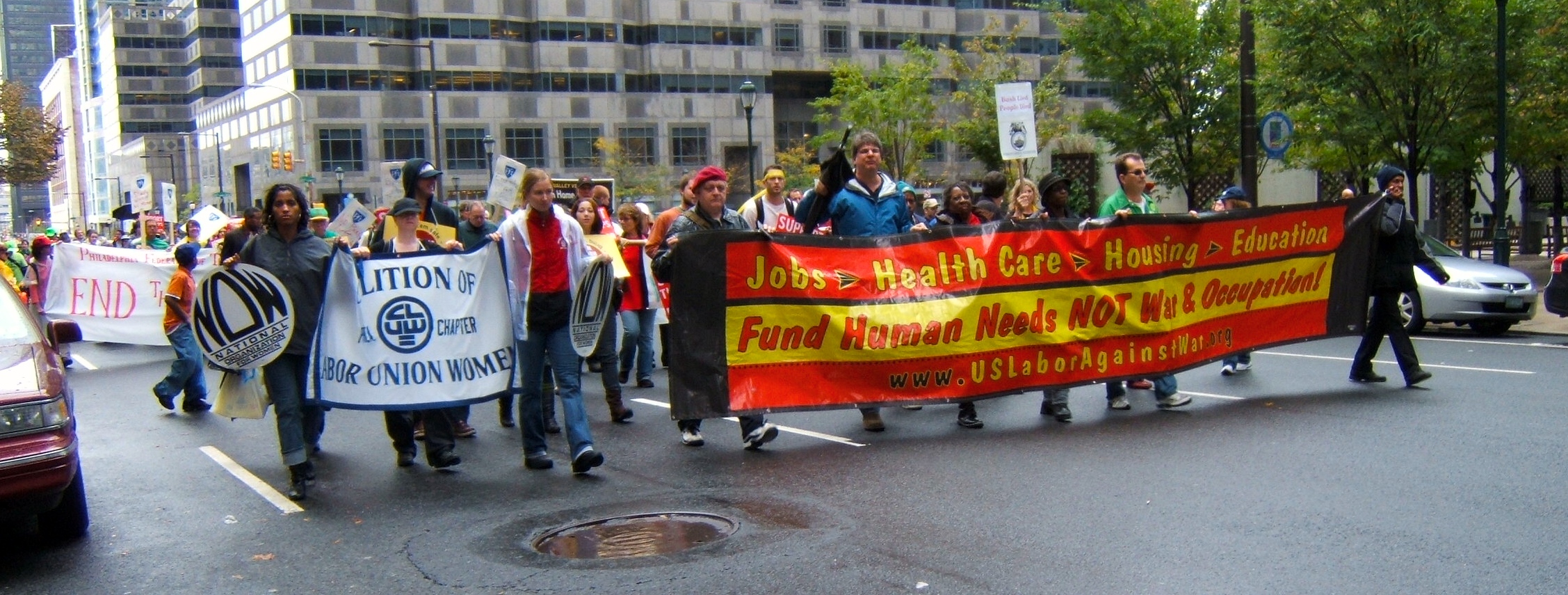Celebrating Joe Hill: 100th Anniversary, November 19, 1915, Part 2
Joe Hill Roadshow, 100th Anniversary Tour
 The nationwide tour honoring the life of Joe Hill, presented by Crossroad Music, stopped in West Philadelphia on July 25. I just joined the I.W.W., Philadelphia Branch, and I’m now a proud, card-carrying member. This concert provided the opportunity to connect to the music of labor activism and to honor Joe Hill.
The nationwide tour honoring the life of Joe Hill, presented by Crossroad Music, stopped in West Philadelphia on July 25. I just joined the I.W.W., Philadelphia Branch, and I’m now a proud, card-carrying member. This concert provided the opportunity to connect to the music of labor activism and to honor Joe Hill.
The previous post, Celebrating Joe Hill: 100th Anniversary, November 19, 1915, Part 1, provides a brief history of Joe Hill’s life and his association with the Industrial Workers of the World.
The anniversary tour began in Chicago and will finish with their last concert in Salt Lake City. A complete listing of the tour dates is available at Joe Hill 100.com.
The Roadshow in Philly featured the folk duo Magpie, singer-songwriter Charlie King, and protest singer George Mann. Terry Leonino and Greg Artzner have been touring as Magpie since 1973, performing a poignant and lively mix of folk, jazz and blues. Charlie King sings and writes about the extraordinary lives of ordinary people. Pete Seeger described him as “one of the finest singers and songwriters of our time.” Reference: Jon Bekken, Joe Hill Roadshow will be in Philly this Weekend.
Local Connection
West Philadelphia resident John Braxton joined the performers. John Braxton and I have a connection through Swarthmore College. When I was active in the living wage campaign at Swarthmore, I met John when he spoke at one of our events in 2002. At the 2010 Commencement, the college president awarded John, Class of 1970, an honorary degree of Doctor of Laws for his labor activism and as co-founder of Philadelphia Jobs with Justice Coalition. In his address to the students, John said,
We face problems on a scale that we have never faced before — but they are solvable if we don’t ignore them. The solutions require building powerful social and political movements — and people do find a way to do that even in the darkest times. Today, we have the tools to guide this process more intelligently and nonviolently. The moral arc of the universe does bend towards justice — if we harness ourselves and help it to bend.
Bekken’s article quotes John as saying,
Today, when the gap in wealth and income between the richest and the rest of us is greater than at any time since the 1930s, it’s a good time to remember that Joe Hill worked for justice for all workers around the world.
The Music
The evening performance began with the rousing, “The Preacher and the Slave,” a song Joe Hill wrote as a parody of the hymn, “In the Sweet By-and-By” and coined the phrase “pie in the sky.” The I.W.W. targeted the Salvation Army for satire because of their illusory promises to workers:
You will eat, bye and bye,
In that glorious land above the sky;
Work and pray, live on hay,
You’ll get pie in the sky when you die
The concert turned into a sing-a-long, as all the music is singable and many in the audience were familiar with the words.
George Mann sang, “Which Side are You On,” written in 1931 by Florence Reece, the wife of a union organizer for the United Mine Workers. Florence borrowed the melody from a traditional Baptist hymn.
Don’t scab for the bosses
Don’t listen to their lies
Poor folks ain’t got a chance
Unless they organize
“There is Power in the Union,” another song by Joe Hill, who used the tune of Lewis E. Jones’ 1899 hymn, “There Is Power in the Blood.”
If you like sluggers to beat off your head,
Then don’t organize, all unions despise.
If you want nothing before you are dead,
Shake hands with your boss and look Wise.Come, all ye workers, from every land,
Come, join in the grand industrial band;
Then we our share of this earth shall demand.
Come on! Do your share, like a man.
Before the song, George read a letter to the editor of Solidarity from Joe Hill.
Near the end of the program, audience and musicians joined in singing “Solidarity Forever,” a song sung to the tune of “John Brown’s Body” and “The Battle Hymn of the Republic.” Although the song was written for the I.W.W, other union movements have adopted the song as their own.
They divide us by our color; they divide us by our tongue,
They divide us men and women; they divide us old and young,
But they’ll tremble at our voices, when they hear these verses sung,
For the Union makes us strong!
A progressive union since its founding in 1905, the I.W.W. has been committed to anti-racism, and at its height, counted among its supporters radical and class fighters. One hundred years ago, Joe Hill understood and advocated for social justice. His songs stay in our political consciousness, encouraging and guiding us toward one big union for all.




















